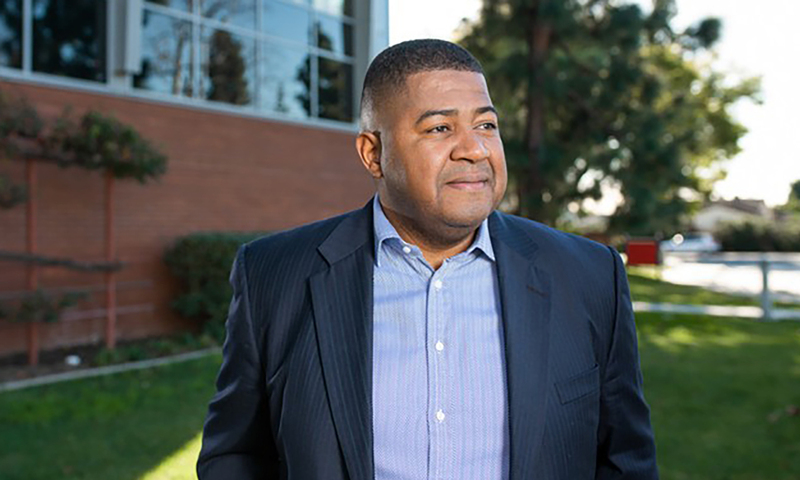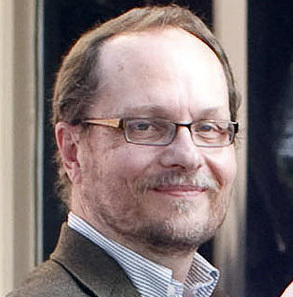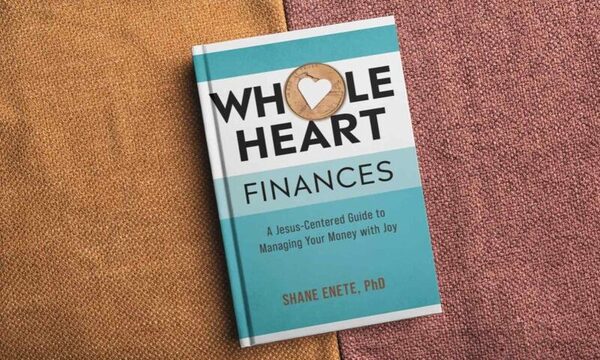Crowell School of Business Professor Dr. Brandon Ware sees economics everywhere.
“There’s a lot of attention being paid to new technologies like AI and algorithms,” said Ware. “We're talking a lot about the new how — the technology — but the why is still economics. Maybe you Googled something and now you're seeing ads for that same thing on Amazon? It’s an algorithm that pops up an ad to see if you’ll click and maybe buy the thing. It’s a more sophisticated way to track consumer behavior, but it’s still economics. That’s why students need to become conversant with economics.”
While Ware’s interests lie primarily in the areas of business analytics and economics, he has a passion for understanding the problem of “food deserts” — areas where access to affordable, healthy food options is limited due to the absence of grocery stores with fresh, nutritious foods. In addition to teaching, his consulting practice focuses on data analytics, demographics, economic forecasting, strategy development, servant leadership and organizational culture change, serving clients in the areas of affordable housing, healthcare, food service and construction development. We asked him about why he’s in education, why economics is important, and how research makes a difference in the real world.
What is your educational background? How did you end up in economics?
I've always been in business. But I found that economics was more in depth; looking at certain variables and being able to quantify them, like labor, or the cost of capital, things like that, and being able to do a calculation. Economics has really transformed in the past 20 years from a theoretical science to more of a quantitative science. That's the marvelous thing about academics and what it brings to business; now we have science to actually back up decisions and forecasts.
łŰ´ÇłÜ’v±đ talked before about food deserts, how grocery chains often target only upper- and middle-class neighborhoods, making it more challenging for inner-city residents to obtain fresh fruit, vegetables and other healthful whole foods. Any research updates?
The objective [of my project] is to investigate how faith-based institutions can address health disparities by improving access to healthful-food options. We will examine three questions: (1) Do churches have a better physical proximity to address the problem of food deserts? (2) How can church engagement improve health education and outcomes? (3) Is the size and type of store significant in addressing food deserts and other pre-existing socioeconomic disadvantages?
This is part of an ongoing study to investigate food deserts, develop valid and reliable measures of accessibility to healthful foods, and offer biblical strategies to mitigate the problem. We’ve found participants are more likely to fill out surveys on the spot, instead of waiting to fill out the survey later, so it’s important to note that Qualtrics software is necessary due to COVID-19 pandemic conditions.
Economics can be pretty challenging. How do you make these complex concepts accessible?
Everyone learns at a different pace and a different level — what comes quickly to some may not to another, so it's important to keep things relatable to everyone. I try to keep all my examples and references within the last three-to-five years. My students teach me quickly what isn’t relevant. For example, the passing of Kobe Bryant — a lot of them don't know who Kobe was, so I couldn't use him as an illustration.
I find the best learning comes from a team-based model, where maybe somebody in their small team doesn't understand something and is hesitant to ask questions in class, but it’s hopefully easier in a small group to ask okay, how did you get that answer? Teams are also great because the best way of learning is explaining it to someone else. If you can teach it, then you have really truly comprehended it; that’s actual learning.
How important is it for these undergrad business students to understand economics, even if that's not their emphasis?
We're finding out that economics and data science — and I teach business analytics as well — are really interchangeable, and become really powerful tools when put together. We’re learning about the data of everything, and that data helps us learn more about supply and demand, from a producer standpoint and from a consumer standpoint. It's the data that allows us to make wiser choices.
You spent some time in Washington state and in Indiana before starting at Biola in fall 2018. Are you and your family getting used to Southern California? What do you do in your free time?
We go to the beach quite a bit. We may go down to Laguna, go to San Diego, other places, just doing outdoor things. I have five kids, so we look for cheap activities, and we look for ways to spend the weekends together. Being able to get outdoors with them and play is key, and coming from the Midwest, hey, no snow! One of the funniest things: We moved here during a very rainy month for L.A., and everyone here was like, Oh, this is the worst weather ever! I wanted to tell them, It's just rain!
What is your favorite thing about Biola?
I think it’s being able to share the word of God without getting slapped on the hand, to be able to share the gospel, to pray with your students, to share devotions and needs and really be there. It's really crucial. Also, being able to really fellowship with colleagues. I love that we pray before every faculty meeting. We pray about students. Where else can you go where you have faculty and administration and staff walking through campus before each semester, praying for students even before they arrive? That's unheard of! To be able to be part of all these things is the reason why I enjoy Biola.
Before coming to şÚÝ®ĘÓƵ, Ware served as an adjunct professor of economics for the Lacy School of Business at Butler University and the DeVoe School of Business at Indiana Wesleyan University. He holds a Ph.D. and a master’s degree from Washington State University, an MBA from Butler University, and master’s and bachelor’s degrees from Murray State University.
Learn more about Crowell’s undergraduate and graduate programs.
 şÚÝ®ĘÓƵ
şÚÝ®ĘÓƵ


.jpg)
.jpg)

